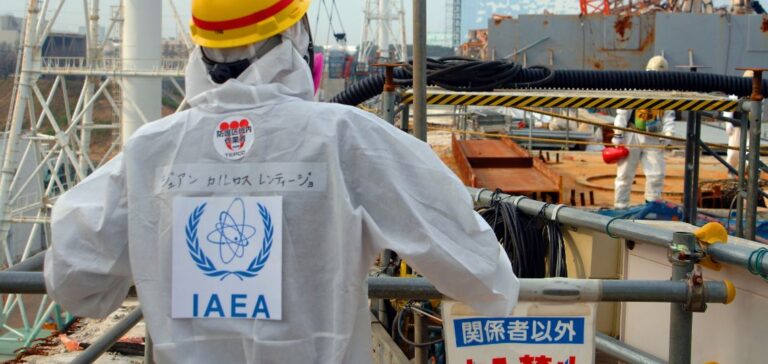The decommissioning of the Fukushima Daiichi nuclear plant remains a significant challenge more than a decade after the 2011 nuclear accident. In this context, Rafael Grossi embarked on a new visit to Japan to assess the progress of decontamination operations and the interim storage of waste. The International Atomic Energy Agency (IAEA) ensures that these efforts adhere to international safety standards.
Storage of Waste and Soil Recycling
During this visit, the IAEA will inspect the interim storage facilities (ISF) where nearly 13 million cubic meters of contaminated soil are stored. Tokyo plans to recycle 75% of low-level radioactive soils for infrastructure projects, provided they meet safety standards. The remaining 25% must be disposed of by 2045, a matter that still raises debates within the government and local communities.
Increasing International Support
Rafael Grossi held discussions with Japanese Foreign Minister Takeshi Iwaya, who announced a funding of 14 million euros for nuclear initiatives in Ukraine and other countries. This cooperation aims to enhance nuclear safety capabilities and radiation-related cancer diagnostics.
Economic Impact and Logistical Challenges
The decontamination of Fukushima has already mobilized tens of billions of euros. Over 9,000 square kilometers have been treated, a monumental project that contrasts with the methods adopted after the Chernobyl disaster. However, this approach generates a significant amount of waste and raises questions about the fertility of the reclaimed land.
Monitoring the Release of Treated Water
As part of the transparency process, IAEA experts, as well as representatives from China and South Korea, will analyze seawater and fish samples. The goal is to assess the impact of the release of treated water into the Pacific Ocean, an operation that began in August 2023. The IAEA and the Japanese government assert that this discharge meets safety standards, but the issue remains sensitive for some neighboring countries.
Progress of the Decommissioning
TEPCO, the plant’s operator, has started dismantling the treated water tanks to free up space for the storage of radioactive debris. Full decommissioning of the site will span several decades. The 2011 disaster, which damaged three of the six operating reactors, makes the management of spent fuel and contaminated structures one of the primary technical and financial challenges.






















